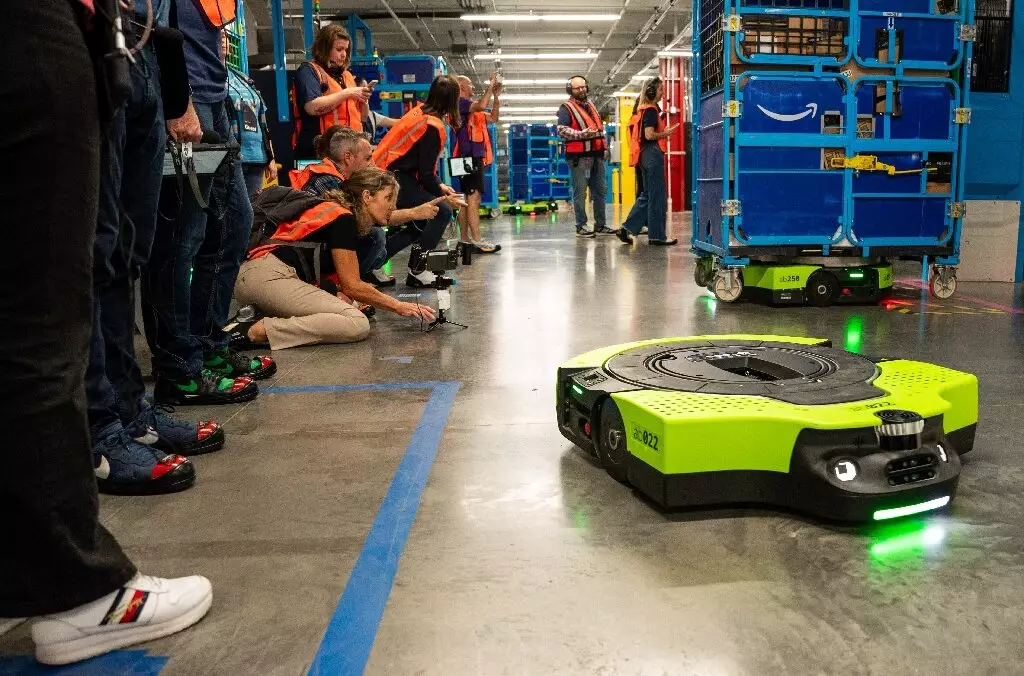Amazon, the Seattle-based behemoth of e-commerce, is not merely content with its impressive stature in the digital marketplace; it is relentlessly exploring new avenues of innovation to further engrain itself into the fabric of everyday life. From advanced logistics and cloud computing to healthcare services and the entertainment landscape, Amazon is shaping the future with a series of technological advancements that promise to redefine consumer experience. However, this rapid expansion is being scrutinized due to potential antitrust issues, raising questions about the implications of monopolistic practices in a digital world.
One of the most notable recent innovations introduced by Amazon is its sophisticated delivery van computer system. This technology is designed to streamline package deliveries, reducing the time between orders and fulfillment—a key component for a company whose success is built on the promise of rapid service. Doug Herrington, head of Amazon Stores, asserts that this system enhances operational efficiency by enabling delivery vans to identify stops and automatically indicate which packages need to be dropped off. Such advancements could lead to Amazon achieving unprecedented Prime delivery speeds globally by 2024, a goal that seems ambitious yet entirely within reach given the company’s track record.
The impact of these innovations is not merely operational; they directly affect consumer behavior. According to Herrington, by accelerating delivery times, Amazon encourages customers to shop more frequently, thereby increasing overall sales. This multiplier effect illustrates how Amazon’s finely-tuned logistics network serves as a powerful engine for its vast e-commerce empire. In fact, recent financial reports indicate that Amazon achieved more than $30 billion in profit from revenue surpassing $575 billion, further underscoring the effectiveness of its operational strategies.
Pushing Boundaries: Amazon’s Diverse Business Model
Amazon’s strength lies not just in its e-commerce platform but also in its expansive business model that encompasses various sectors, including advertising, cloud services, and entertainment. As noted by eMarketer analyst Suzy Davidkhanian, Amazon’s flywheel model, with Prime membership acting as its central cog, binds its diverse offerings to create a cohesive ecosystem that keeps consumers engaged. The company capitalizes on consumer data, leveraging insights to tailor advertising and product suggestions—a practice that came into the spotlight when Amazon secured streaming rights for NFL games, linking sports viewership directly to its retail services.
Meanwhile, Amazon is venturing deeper into the healthcare space, enhancing its virtual health services through its subsidiary One Medical. For a nominal monthly fee, Prime members can access virtual consultations, medication management, and more—all expedited through Amazon’s famed delivery network. With ambitious plans to ensure rapid delivery of prescriptions, Amazon aims to aggregate everything a consumer might need within a single platform, further solidifying its position as a one-stop-shop.
Despite its successes, Amazon faces significant backlash, particularly regarding allegations of monopolistic behavior. The U.S. government is pursuing legal actions aimed at curtailing what some describe as predatory practices that undermine competition. Critics express concern about Amazon’s capacity to gather extensive consumer data and its resultant ability to dominate multiple markets. They caution that while Amazon’s innovations may seem beneficial on the surface, the company’s extensive reach into various sectors poses risks to consumer choice and market diversity.
Furthermore, within its logistical operations, there are growing concerns regarding the working conditions in Amazon warehouses. From excessive delivery pressures to safety issues attributed to automation, workers have raised alarms about the implications of an unrelenting push for efficiency. While automation and robotics are designed to improve operations, they can create an environment where the focus on speed overshadows employee welfare.
As Amazon continues to push boundaries in e-commerce and various other sectors, it will be essential for the company to balance its relentless innovativeness with responsibility. The duality of capitalizing on consumer demands while navigating regulatory scrutiny will be a significant challenge moving forward. The potential for growth in areas like automated micro-warehouses and AI-driven product features presents exciting opportunities, yet they must not come at the expense of ethical practices and a commitment to fair competition.
Amazon’s trajectory paints a picture of immense ambition and foresight, adept at leveraging technology to bind together a diverse array of services catering to a broad consumer base. However, the company must remain vigilant in addressing the ethical implications of its strategies, ensuring that its quest for growth and efficiency does not undermine the values of fairness and competition within the digital marketplace.

